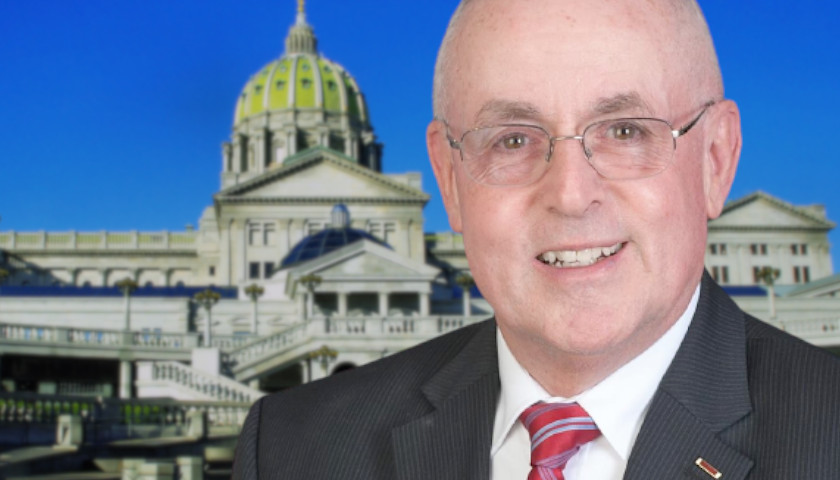State Representative Frank Ryan (R-Palmyra) this week proposed amending the Pennsylvania Constitution to eliminate the portion of property taxes collected by localities to fund public schools.
In February, Ryan sponsored another bill to abolish school property taxes by statute; that measure has yet to receive a vote in the House of Representatives Finance Committee. While enacting a statute requires majority assent of the House and Senate and the signature of the governor, amending the state constitution requires House and Senate approval in two consecutive sessions. The policy would then go before Pennsylvania voters as a ballot question for approval or rejection and the governor would play no role in that process.
In a memorandum asking colleagues to co-sponsor his proposed constitutional amendment, the representative said Keystone State residents should favor shifting the K-12 public education funding stream from levies on property ownership to local income and sales taxes.
“The property tax is effectively an asset tax on homes, which for many people is their largest asset,” Ryan wrote. “This disproportionately impacts middle and lower-income residents. Shifting to a sales/income tax eliminates the regressive school property tax and will serve to eliminate barriers to home ownership.”
In his statutory proposal, the central Pennsylvania lawmaker creates a two-percent sales-and-use tax that each county would collect and distribute to its school districts. This levy would apply to food and clothing, which the commonwealth currently does not subject to its six percent sales tax. The bill also permits school districts to charge residents an income tax of up to 1.85 percent in addition to the 3.07 percent income tax that Pennsylvanians pay to the state.
Residents have long complained of burdensome real estate taxes and lawmakers have responded over several decades with numerous attempts to move the school funding system away from reliance on property owners. So far, however, reforms have failed to deliver meaningful, widespread relief, and some limited government advocates observe that while restructuring the state’s school funding scheme changes who pays how much, it doesn’t affect education’s overall cost.
“There’s always tradeoffs to it … ,” Eric Montarti, research director at the Allegheny Institute for Public Policy, told The Pennsylvania Daily Star. “Sure, you do hear a lot of frustration about property taxes, especially property taxes for schools. But when it comes time to put the revenue generation on another source, will taxpayers go for it?”
In the past, they have not: In 2006, then-Governor Ed Rendell (D) and the Republican-controlled legislature enacted Act 1, which expanded property tax rebates and limited the extent to which school districts could increase real estate taxes without seeking voter approval by referenda. The act also posed a statewide ballot question to voters in spring 2007 as to whether they wanted to replace school property taxes with local income taxes. Majorities in nearly every school district answered with a resounding “no.”
Still, the portion of Pennsylvania’s K-12 education funding that gets financed via real estate taxes is massive at around $15 billion annually, and insofar as state officials have implemented no major cost-cutting measures, politicians continued to suggest tax shifts. As part of his first budget, Governor Tom Wolf (D) suggested reducing property taxes in exchange for higher income and sales taxes — a deal at which the GOP-led general assembly balked.
Five years ago, lawmakers asked residents for approval of a measure to change the state constitution so that legislators could write a statute to exempt homeowners from all property taxes. Fifty-four percent of voters supported that amendment, but enabling legislation to deliver actual tax relief has not been enacted.
– – –
Bradley Vasoli is managing editor of The Pennsylvania Daily Star. Follow Brad on Twitter at @BVasoli. Email tips to [email protected].




